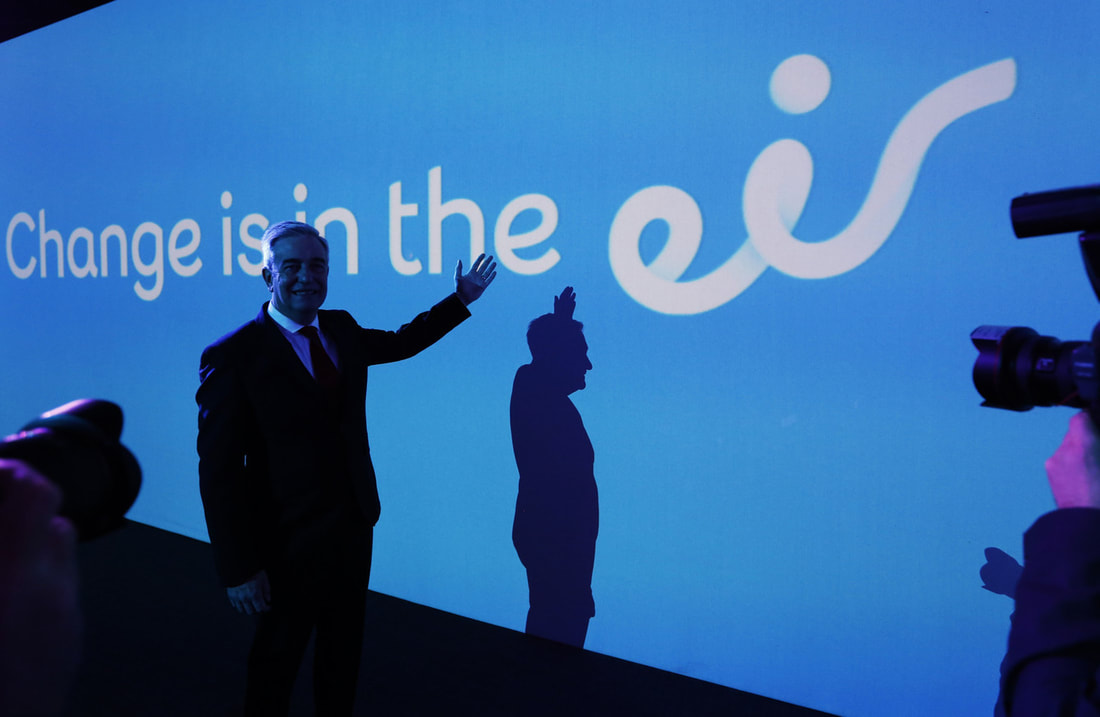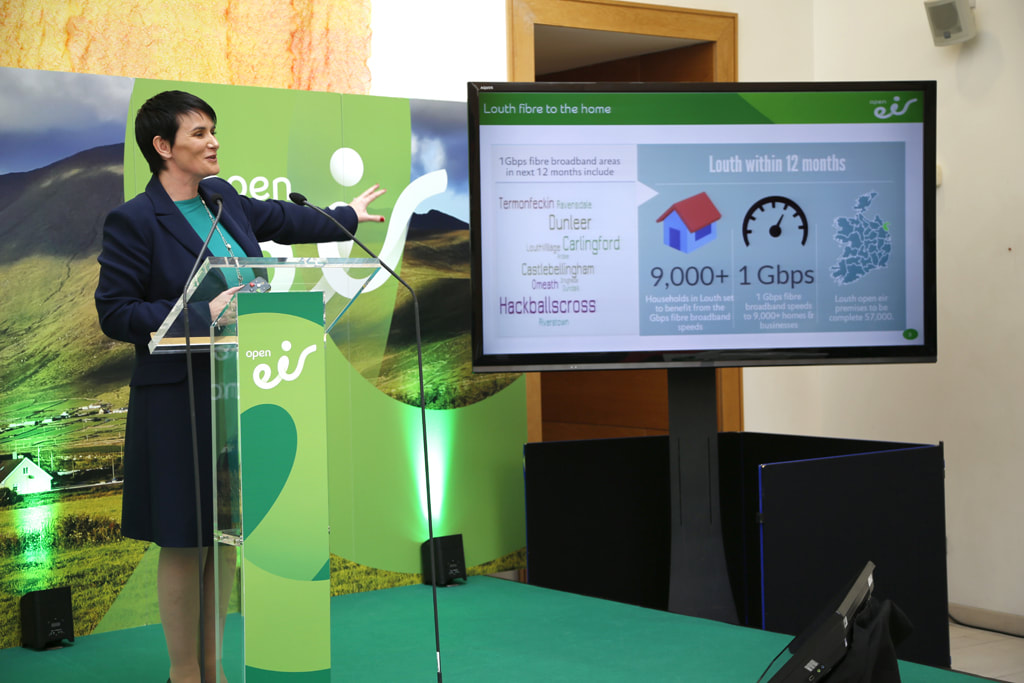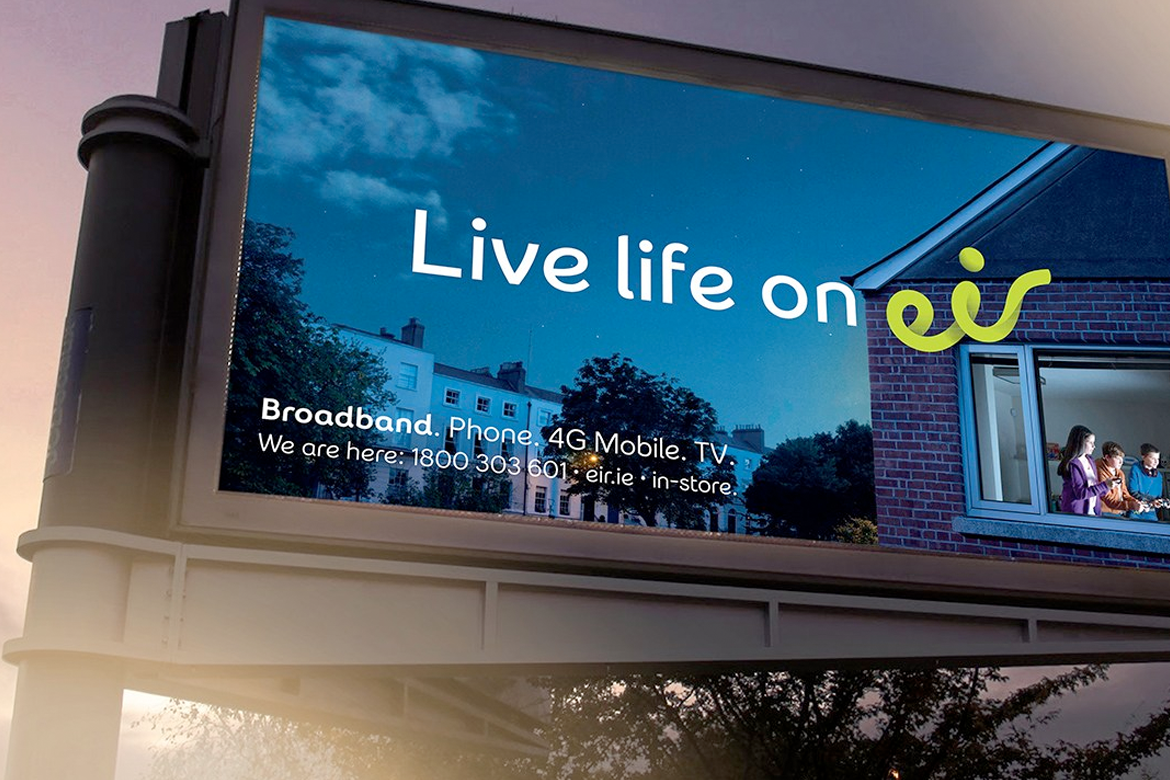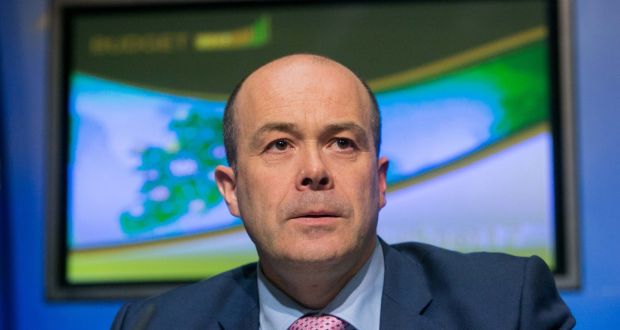Eir: Few Companies have this much Potential
A deep dive into the state of eir in 2018, looking to the future of Ireland's largest telecoms company.
Published 23/07/2018
No other telecoms company in Ireland has had a past quite as complex and intriguing as that of eir. The company has seen so many different controlling shareholders (nine) at this point that it's difficult to remember. It was once a state-owned company, before privatisation in 1999. After that point, eircom found itself on a slippery slope, a slope that only became surmountable in the last few years.
Haemorrhaging millions of euro to maintain its broadband monopoly throughout Ireland, eircom was seen as a stale company, a company behind the times. Eircom knew this, and in 2015 embarked on a rebranding saga that would change the company forever. That rebranding saga resulted in the creation of a modern company (eir), a company that would continue its legacy of maintaining the largest broadband network in Ireland. The rebrand even spilt over to its mobile network, Meteor, which was acquired by eircom in 2005. Last year, eir waved goodbye to Meteor, taking a final axe to the remnants of eircom.
Today, eir is Ireland's largest total communications provider, pioneering quad-play in a way that no other company in Ireland has yet achieved. Quad-play, which combines mobile (eir mobile), tv (eir Vision), broadband(eir Fibre), and landline, has proven to be extremely lucrative. There is a growing percentage of people who rely solely on one company to provide them with everything, and eir is trying to be that company. Eir's ecosystem of services continues to expand, just look to the successful launch of eir Sport in 2016, tightening the company's grip over its customers. As an example of just how powerful quad-play is, think about this, live life on eir and want to leave? Where do you go? You can't choose Three, it's a mobile-focused company, Virgin Media's network isn't available everywhere and Vodafone has yet to integrate its mobile plans with its broadband and tv services in the same way that eir has.
Haemorrhaging millions of euro to maintain its broadband monopoly throughout Ireland, eircom was seen as a stale company, a company behind the times. Eircom knew this, and in 2015 embarked on a rebranding saga that would change the company forever. That rebranding saga resulted in the creation of a modern company (eir), a company that would continue its legacy of maintaining the largest broadband network in Ireland. The rebrand even spilt over to its mobile network, Meteor, which was acquired by eircom in 2005. Last year, eir waved goodbye to Meteor, taking a final axe to the remnants of eircom.
Today, eir is Ireland's largest total communications provider, pioneering quad-play in a way that no other company in Ireland has yet achieved. Quad-play, which combines mobile (eir mobile), tv (eir Vision), broadband(eir Fibre), and landline, has proven to be extremely lucrative. There is a growing percentage of people who rely solely on one company to provide them with everything, and eir is trying to be that company. Eir's ecosystem of services continues to expand, just look to the successful launch of eir Sport in 2016, tightening the company's grip over its customers. As an example of just how powerful quad-play is, think about this, live life on eir and want to leave? Where do you go? You can't choose Three, it's a mobile-focused company, Virgin Media's network isn't available everywhere and Vodafone has yet to integrate its mobile plans with its broadband and tv services in the same way that eir has.
A Broadband Network that Reigns Supreme
As the incumbent broadband operator in Ireland, eir has reaped great benefits that will continue to prove invaluable for the company as the National Broadband Plan nears commencement. When one company holds a gigantic 46.8% share in a market one may assume that they have developed a monopoly, and with eir, that's certainly true for broadband. The sheer scale of eir's broadband network in Ireland trumps all of its competitors. Eir manages the majority of copper lines, ducts and poles in the country.
No other company in Ireland has invested in broadband as heavily as eir has, whether that's lightning speed Fibre-To-The-Home (FTTH) or its huge network of fibre cabinets in the towns and cities throughout Ireland. Eir has passed over 1.7 million premises with fibre, with over 100,000 of those being FTTH and capable of achieving speeds of up to 1000Mbps. Eir also boasts more experience in delivering broadband in this country than any other company. Eir has demonstrated its commitment to invest in broadband infrastructure on a scale that has yet to be matched.
The company has transformed lives, its taken once disconnected communities out of the dark and connected them with world-class broadband. I suspect the economic benefits that eir's broadband network has had on rural areas to be very significant, contributing to the growth of businesses and jobs.
However, with such a large network to maintain, eir faces an uphill battle to ensure its network doesn't fall victim to the test of time. Eir's urban broadband network, which is predominantly composed of Fibre-To-The-Cabinet (FTTC) and then copper from the cabinet to the home boasts speeds of up to 100Mbps. In a vacuum, these speeds seem great, but when you take into account the fact that Virgin Media's network can achieve speeds of over 240Mbps and the rate at which broadband usage is climbing year after year, eir's urban network will be obsolete very soon. It's strange because some rural areas are now enjoying speeds multiple times faster than their urban counterparts due to eir's implementation of FTTH.
Eir was a leading bidder in the procurement process for the National Broadband Plan, its expertise in deploying critical infrastructure in Ireland and the size of its existing network meant many people felt the company would be best equipped to roll out the plan. However, eir managed to negotiate a (controversial) deal with the government that removed 300,000 homes from the plan. Under the terms of the deal, eir pledged to connect these homes with FTTH home speeds. Some believe that eir effectively cherry-picked the most economical homes to connect, and the deal meant SIRO (a joint venture between Vodafone and ESB) was forced to withdraw from the process.
Eir then decided it was time to leave the process at the beginning of this year, referring to the complexity and regulatory issues as the reason for its withdrawal. Then, a French Billionaire, Xavier Niel, became the majority shareholder in the company, marking yet another change in ownership. Richard Moat, who successfully transformed the company, was replaced by Carolan Lennon as CEO. Carolan was the previous leader of eir's wholesale business, open eir.
Since the change in ownership of eir, the company has begun a process of shedding 750 jobs, a quarter of the company's workforce. It's been suggested that eir's new owners want to cut expenses and deliver high margins. It remains to be seen if the company will stay under the control of Niel in the long term, that would be a welcome change from eir's turbulent past.
No other company in Ireland has invested in broadband as heavily as eir has, whether that's lightning speed Fibre-To-The-Home (FTTH) or its huge network of fibre cabinets in the towns and cities throughout Ireland. Eir has passed over 1.7 million premises with fibre, with over 100,000 of those being FTTH and capable of achieving speeds of up to 1000Mbps. Eir also boasts more experience in delivering broadband in this country than any other company. Eir has demonstrated its commitment to invest in broadband infrastructure on a scale that has yet to be matched.
The company has transformed lives, its taken once disconnected communities out of the dark and connected them with world-class broadband. I suspect the economic benefits that eir's broadband network has had on rural areas to be very significant, contributing to the growth of businesses and jobs.
However, with such a large network to maintain, eir faces an uphill battle to ensure its network doesn't fall victim to the test of time. Eir's urban broadband network, which is predominantly composed of Fibre-To-The-Cabinet (FTTC) and then copper from the cabinet to the home boasts speeds of up to 100Mbps. In a vacuum, these speeds seem great, but when you take into account the fact that Virgin Media's network can achieve speeds of over 240Mbps and the rate at which broadband usage is climbing year after year, eir's urban network will be obsolete very soon. It's strange because some rural areas are now enjoying speeds multiple times faster than their urban counterparts due to eir's implementation of FTTH.
Eir was a leading bidder in the procurement process for the National Broadband Plan, its expertise in deploying critical infrastructure in Ireland and the size of its existing network meant many people felt the company would be best equipped to roll out the plan. However, eir managed to negotiate a (controversial) deal with the government that removed 300,000 homes from the plan. Under the terms of the deal, eir pledged to connect these homes with FTTH home speeds. Some believe that eir effectively cherry-picked the most economical homes to connect, and the deal meant SIRO (a joint venture between Vodafone and ESB) was forced to withdraw from the process.
Eir then decided it was time to leave the process at the beginning of this year, referring to the complexity and regulatory issues as the reason for its withdrawal. Then, a French Billionaire, Xavier Niel, became the majority shareholder in the company, marking yet another change in ownership. Richard Moat, who successfully transformed the company, was replaced by Carolan Lennon as CEO. Carolan was the previous leader of eir's wholesale business, open eir.
Since the change in ownership of eir, the company has begun a process of shedding 750 jobs, a quarter of the company's workforce. It's been suggested that eir's new owners want to cut expenses and deliver high margins. It remains to be seen if the company will stay under the control of Niel in the long term, that would be a welcome change from eir's turbulent past.
A Mobile Network Ripe for Change
The dominance that eir enjoys in the broadband market isn't replicated in its mobile network. Eir's mobile network has never been the company's priority, but I believe it will take a renewed effort in the mobile division over the coming years, especially considering Niel's expertise preside in mobile. With 5G upcoming, eir will need to invest heavily in the mobile network if it is to compete with Vodafone and Three. At present, eir's network is struggling to cope with demand in many areas.
Eir's 4G network expanded significantly faster than that of Three, however, recent stagnation has meant eir's network is beginning to fall behind Three in terms of 4G coverage and speed. Vodafone is still ahead by quite a lot, deploying 4G+ in an increasing number of locations to boost capacity. Eir's customers enjoy WiFi calling, a feature unique to eir. The mobile network has a history of innovation, for example, it was the first Irish network to deploy 4G.
With 96% 4G population coverage, eir slightly edges out Three. However, Vodafone has a much larger footprint of geographic 4G coverage compared to eir. Eir's 4G network desperately needs more capacity in a number of areas, which eir can easily resolve by deploying more spectrum or densifying the network. 5G is scheduled to launch in Ireland by 2020, eir's vast fibre network will be a key advantage. As 5G uses ultra high-frequency spectrum, millions of new small cells will be required to achieve blanket coverage. Eir will be uniquely able to run fibre cables to most of these cells.
It is expected that eir may raise the prices on some of its mobile plans, for that to happen, it will need to coincide with an improvement in network performance. At the moment, eir's mobile network is being beaten by Three and Vodafone, but the problems that eir's network faces going into the future are to a lesser degree than the ones Three will face. I would also like to mention that eir's customers have enjoyed a much better network experience over the last number of years than Three's customers have, partly due to the disastrous merger of Three and O2.
Eir's 4G network expanded significantly faster than that of Three, however, recent stagnation has meant eir's network is beginning to fall behind Three in terms of 4G coverage and speed. Vodafone is still ahead by quite a lot, deploying 4G+ in an increasing number of locations to boost capacity. Eir's customers enjoy WiFi calling, a feature unique to eir. The mobile network has a history of innovation, for example, it was the first Irish network to deploy 4G.
With 96% 4G population coverage, eir slightly edges out Three. However, Vodafone has a much larger footprint of geographic 4G coverage compared to eir. Eir's 4G network desperately needs more capacity in a number of areas, which eir can easily resolve by deploying more spectrum or densifying the network. 5G is scheduled to launch in Ireland by 2020, eir's vast fibre network will be a key advantage. As 5G uses ultra high-frequency spectrum, millions of new small cells will be required to achieve blanket coverage. Eir will be uniquely able to run fibre cables to most of these cells.
It is expected that eir may raise the prices on some of its mobile plans, for that to happen, it will need to coincide with an improvement in network performance. At the moment, eir's mobile network is being beaten by Three and Vodafone, but the problems that eir's network faces going into the future are to a lesser degree than the ones Three will face. I would also like to mention that eir's customers have enjoyed a much better network experience over the last number of years than Three's customers have, partly due to the disastrous merger of Three and O2.
Conclusion: Completing the Transformation
Eir has managed to persevere so much in its time as a telecoms provider in Ireland, and that's a testament to the strength of the company which continues to evolve. The unparalleled scale and capacity of eir's broadband network in Ireland has helped the company dominate the market, even in the face of increased competition from Virgin Media and SIRO. Thanks to the recent deal with the government, eir is actively rolling out FTTH to 300,000 premises in Ireland, providing world-class speeds and allowing businesses to operate in the digital world like never before. Eir will be a key player in the National Broadband Plan, even if it has withdrawn from the process, and can expect to receive significant sums of money in exchange for access to its network. It remains to be seen if eir will roll out FTTH in the towns and cities currently served by FTTC broadband as our demand for bandwidth continues to grow at an unprecedented rate.
Three is finally nearing the consolidation of its network, at the same time Vodafone continues to bolster its position as the fastest mobile network in Ireland. Eir Mobile needs more investment than it is currently getting, signalled by a slight decline in subscribers according to ComReg's most recent report.. 5G will be a revolutionary wireless standard that is just over the horizon, and it will be critical for eir to deploy the network aggressively if it wants to compete with Vodafone or Three. The "Spectrum Crunch" that eir's network is currently experiencing can be mitigated using a number of methods, methods which will need to be implemented very soon.
The company likes to use the term "Live life on eir", and that life is a life which is becoming more enjoyable day by day, as eir connects home after home with life-changing fibre speeds.
Three is finally nearing the consolidation of its network, at the same time Vodafone continues to bolster its position as the fastest mobile network in Ireland. Eir Mobile needs more investment than it is currently getting, signalled by a slight decline in subscribers according to ComReg's most recent report.. 5G will be a revolutionary wireless standard that is just over the horizon, and it will be critical for eir to deploy the network aggressively if it wants to compete with Vodafone or Three. The "Spectrum Crunch" that eir's network is currently experiencing can be mitigated using a number of methods, methods which will need to be implemented very soon.
The company likes to use the term "Live life on eir", and that life is a life which is becoming more enjoyable day by day, as eir connects home after home with life-changing fibre speeds.
|
Recent Article:
The National Broadband Plan: A Dream marred by MistakesAnalysing the mistakes which have delayed the National Broadband Plan, leaving thousands of Irish people on the wrong side of the digital divide.
|





